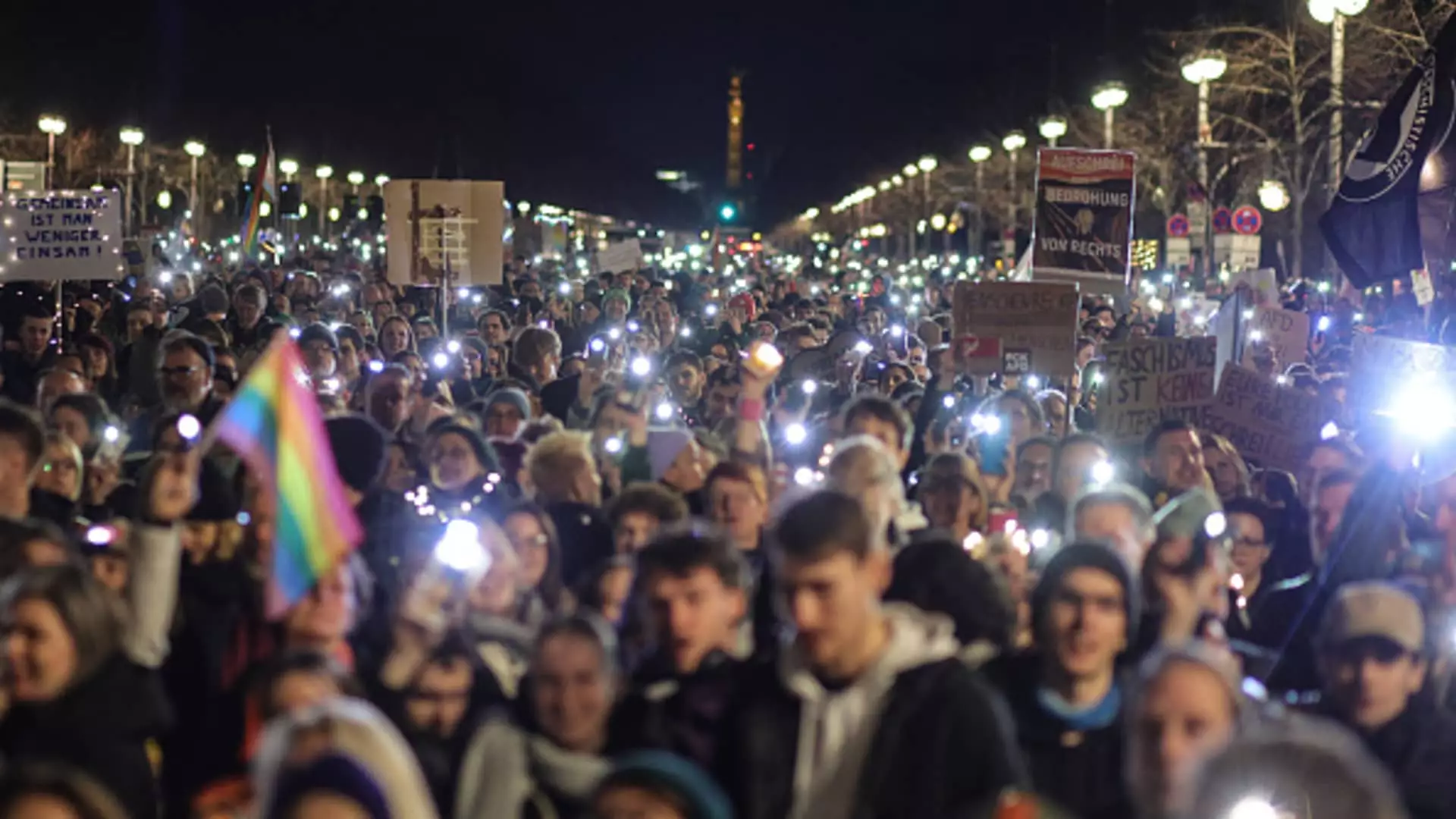On a significant Saturday in February, a powerful wave of dissent surged through the streets of Germany, as tens of thousands rallied against the growing influence of the far-right Alternative for Germany (AfD) party. The protest, seen in cities like Berlin, was not just a stand against a single political entity, but a broader commentary on the alarming ascendance of extremist ideologies in Europe. Gathering at notable landmarks such as Berlin’s Brandenburg Gate, participants expressed their discontent through whistles, songs, and banners that denounced the AfD and its anti-immigrant stance. This rally came ahead of a precarious general election, scheduled for February 23, spotlighting a nation bracing for potential political upheaval.
Activists, featuring prominent figures from movements like Fridays for Future, seized the opportunity to broaden the conversation beyond the AfD, calling attention to similar far-right movements gaining traction across Europe and even resonating in the United States with the administration of former President Donald Trump. Luisa Neubauer’s resolute speech echoed the sentiment of many who believe that the rhetoric employed by right-wing populists threatens not just social cohesion but also the collective fight against climate change. Her passionate assertion that “those who fuel racism and attack climate protection are not just campaigning, they are endangering lives,” underscored the intertwined nature of social justice and environmental action.
Germany, Europe’s largest economy, is navigating through stormy waters, exacerbated by the collapse of Chancellor Olaf Scholz’s governing coalition late the previous year. Debates around economic revitalization in the face of stagnation have further polarized political opinions, leading to heightened tensions as the election date approaches. While the AfD was busy launching its campaign in Halle, where party leader Alice Weidel addressed an audience of approximately 4,500, mainstream political parties were faced with the dilemma of how to engage or counter the AfD’s increasing popularity. Weidel’s controversial connections, including support from tech magnate Elon Musk, raised eyebrows and ignited discussions on the influence of external figures in German politics.
As the political landscape matures in the lead-up to the election, traditional parties are recalibrating their strategies. Notably, the center-right Union bloc and its candidate, Friedrich Merz, find themselves at a crossroads. They lead pre-election polls but must navigate the risk of accusations concerning their stance towards the AfD. Merz’s announcement of forthcoming motions to Parliament aiming to strengthen migration policies raised concerns about potential tacit support of the AfD’s agenda. Historically, mainstream parties have eschewed collaboration with the far-right, placing Merz in a delicate position as he seeks to balance the demands of his base while maintaining a principled stand against extremist alliances.
The events of that February day exemplified a critical moment for Germany’s democratic fabric. With elections on the horizon, the response to the emerging far-right presents not only a challenge but a litmus test for the resilience of democratic values in Europe. As protests against the AfD endure, they reflect a collective refusal to accept the normalization of extremist ideology. The outcome of the upcoming election will certainly shape the future trajectory of Germany and potentially influence the broader European landscape in the battle against intolerance.

